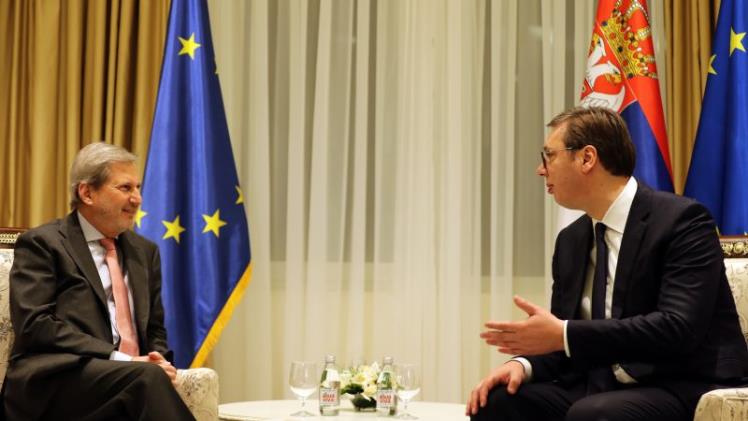Serbia is in great demand now, and it really has something to offer. It has made a great leap forward in recent years by creating a business-friendly environment, which helped the country attract major foreign investors and entrepreneurs from across the globe. Serbian banking is excellent, and it comes at much lower prices than on average in Europe. If you want to set up a business here, you will take advantage of a straightforward company registration procedure and low taxes compared to Europe. Expats flock here to enjoy a European lifestyle at an affordable price. Obtaining a residence permit is not very difficult – and if you want to become a Serbian citizen, it will take 5 to 7 years. Many people choose this path as they know that Serbia is about to join the European Union, so they will get an EU passport in the future which opens up great opportunities.
If you want to know more about each of these opportunities (including some others, like reliable asset protection), go to SerbiaWealth, a portal fully devoted to this beautiful Balkan country. This article is focused on the prospects of Serbia’s accession to the European Union as many people are interested in this aspect.
US Support of Serbia’s EU Membership
Joining the EU is not that easy in the case of Serbia as it has some problems to be solved. US Ambassador Christopher Hill said that the United States fully supported Serbia’s possible EU membership if it settles the conflict with an independent Kosovo, and the country is doing its best to comply with this requirement.
The official Pristina has also submitted an application to become an EU candidate. However, it is clear that neither Serbia nor Kosovo will get a positive answer from all EU officials until they normalize their relations. And that’s where the efforts of both countries should be focused.
Aleksandar Vucic, the President of Serbia, is well aware of this fact. He said in an interview that Serbia should consider the plan proposed by the Western countries to settle the conflict with Kosovo. Otherwise, it may blow the chance of joining the European community as the decision-making countries will simply vote against it. These are not the consequences that the country would like to face.
However, this is not all: Serbia’s refusal to impose the sanctions against Russia (in line with all the European countries) is yet another stumbling block not to be disregarded. President Vucic fears that the country may be forced to make a hard decision with regard to the issue in the near future. On the one hand, Serbia’s political and economic prospects will remain vague if it loses a chance to become an EU member. On the other hand, the country would like to retain good relations with all major powers. As you see, there is no easy solution here.
Vucic did not hide the fact that if the country rejects the international plan of normalizing relations with Kosovo, it will sustain considerable political and economic losses, which was made clear to him by the Western partners. The President’s team is working hard on a compromise that could be achieved during negotiations. The position upheld by Aleksander Vucic is clear: Serbia has no future unless it becomes an EU member.
The more effort is taken by Serbia to become an EU member and team up with the West, the more considerable investments it can expect to get from the United States. The latter has already contributed USD 4.5 billion to the country’s economy, and the trade between the two states is substantially expanding. Serbia exports a lot of products to the USA.
Christopher Hill gives full support to the Open Balkans initiative focused on regional integration. He says that foreign corporations analyze the situation in each country before they decide to set up their production facilities there. They need to know whether they will encounter any obstacles if they decide to enter the markets of neighboring countries. This is the main reason why the US backs the Open Balkans initiative.
As you see, the Serbian authorities are doing their best to join the European Union in the foreseeable future, which may potentially result in the tightening of the immigration policy. Meanwhile, the requirements are quite relaxed. If you want to set up a business in Serbia or relocate to the country along with your family, you’d better not delay the decision for too long.
Serbia and Kosovo: International Plan
The initiative “On Normalization of Relations”, elaborated by France and Germany, says that Serbia is under no obligation to officially recognize the independence of Kosovo. However, it is required to stop impeding Pristina’s membership in international organizations. Moreover, the two countries will have to set up representative offices in each other’s territory. Pristina is required to establish associations of semi-autonomous municipal units that are mainly populated by Serbs.
If we look at the Balkan countries in general, Slovenia and Croatia are the only states that have successfully joined the European Union. Serbia, Montenegro, and Northern Macedonia have the status of official candidates. Kosovo submitted an application at the end of 2022, while Bosnia has announced its intentions but has not made any tangible steps yet.
EU Integration: Serbian Priority
According to the Serbian Prime Minister Ana Brnabić, the country’s top priorities include close cooperation with all its neighboring countries and rapprochement with the EU. She said that more than 280,000 Serbs are now working in European countries, and this figure is likely to grow.
Serbia is actively implementing reforms in line with EU requirements that will develop the country’s economy, help it strengthen the rule of law, reform the judicial system, fight organized crime and corruption, and ensure the protection of human rights.
Conclusion
Interested in a dynamically developing country that is persistently moving towards obtaining the status of an EU member? Do not hesitate to click on the above link and explore the state with really huge potential – or discuss your plans with an expert.





